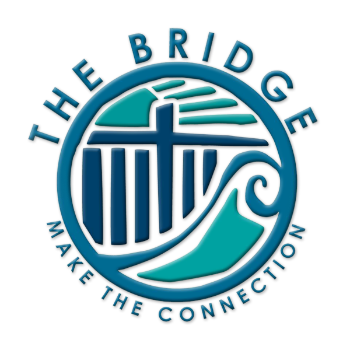BAPTISM
God Has Chosen Us
At Jesus’ baptism, God said: “This is my son.” While Jesus’ relation to God as Son is unique, for Christians baptism means that God has also chosen us as daughters and sons, and knows us intimately as a parent.
So the most important things about us, our true identity, is that we are now sons and daughters of God. That is why the introduction to the United Methodist Baptismal Covenant states, “We are incorporated into God’s mighty acts of salvation and given new birth through water and the Spirit.”
The introduction also says, “Through the Sacrament of Baptism, we are initiated into Christ’s holy church.”
Baptism Is the Door
From the beginning, baptism has been the door through which one enters the church. It was inconceivable to many that one could respond to God’s grace by reciting the renunciations, affirming one’s faith in Christ and loyalty to the Kingdom, without joining the fellowship of those who are committed to mature in that faith. As the “Body of Christ” in the world, baptism commissions us to use our gifts to strengthen the church and to transform the world.
Why Baptize Babies?
From the earliest times, children and infants were baptized and included in the church. As scriptural authority for this ancient tradition, some scholars cite Jesus’ words, “Let the little children come to me…for it is to such as these that the kingdom of God belongs” (Mark 10:14). However, a more consistent argument is that baptism, as a means of grace, signifies God’s initiative in the process of salvation. John Wesley preached “prevenient grace,” the grace that works in our lives before we are aware of it, bringing us to faith. The baptism of children and their inclusion in the church before they can respond with their own confirmation of faith is a vivid and compelling witness to prevenient grace.
Baptism Is Forever
Because baptism is a sacrament of God’s grace and a covenant that God has initiated, it should not be repeated. However, God’s continuing and patient forgiveness, God’s prevenient grace, will prompt us to renew the commitment first made at our baptism. At such a time, instead of rebaptism, The United Methodist Church offers the ritual for the reaffirmation of baptismal vows, which implies that, while God remains faithful to God’s half of the covenant, we are not always faithful to our promises. Our half of the covenant is to confess Christ as our Savior, trust in his grace, serve him as Lord in the church, and carry out his mission against evil, injustice, and oppression.
Baptism Is the Beginning, Not the End
Baptism is the beginning of a lifelong journey of faith. It makes no difference whether you were baptized as an adult or as a child; we all start on that journey at baptism. For the child, the journey begins in the nurturing community of the church, where he or she learns what it means that God loves you. At the appropriate time, the child will make his or her first confession of faith in the ritual the church traditionally calls confirmation. Most often, this is at adolescence or at the time when the person begins to take responsibility for his or her own decisions.
If you experienced God’s grace and were baptized as an adult or received baptism as a child and desire to reaffirm your baptismal vows, baptism still marks the beginning of a journey in the nurturing fellowship of the caring, learning, worshipping, serving congregation.
Thank you for contacting us!
We have received your message and will contact you shortly

